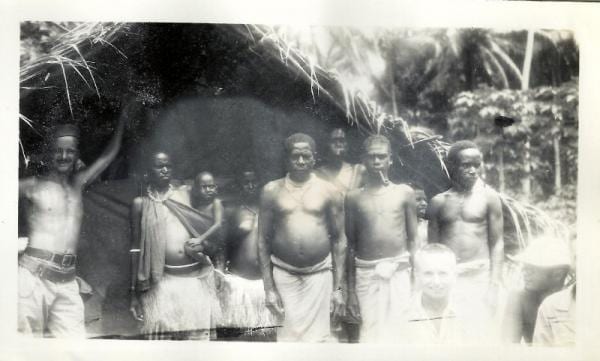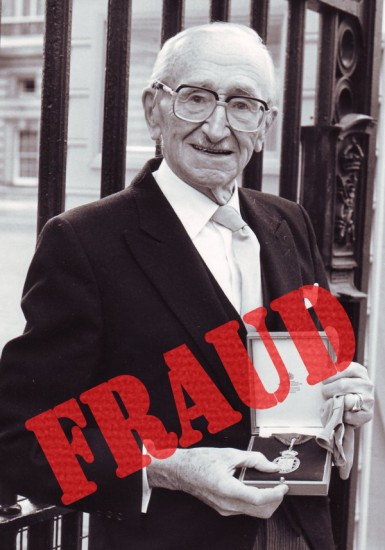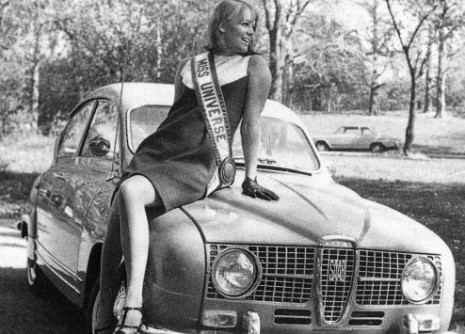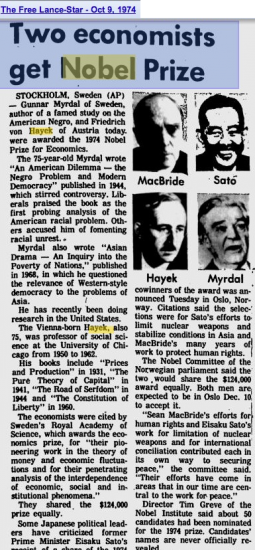OpEds: Fairness and Sustainability – Taking the FAS-Track
by Diane Gee, Editor, The Wild Wild Left
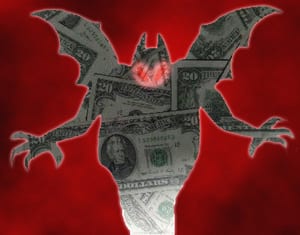
Economics is not a thing. It’s a contrived process, miles of convoluted intestinal tracts, twisting sinews, spasming to pass along fetid human flotsam and degraded resources with every value leached out along the way leaving nothing in its wake but the product it defecates. We all know how lovely that is.
Yeah, I love economics. All theory is based on previous theory, including the Leftist “greats” who I am finally slogging my way through. Marx, Lenin, whoever. Not to be dismissive of their groundbreaking idea that the peasantry itself was actually the source of all wealth, though I gather slaves have fathomed that nuance throughout the entire reality of human interaction. It’s a great thing to say out loud. I said it long before I read them. “We are money. We are the source through which all gains flow, and there truly are no gains that are not ill-begotten gains, if you really think about it.”
They say money doesn’t buy happiness. I counter money buys unhappiness, actually misery and suffering in an exponential pyramid to those on the bottom holding it up.
What money really buys? Is time. Time to enjoy life rather than endure it. It is not only labor being stolen, our inherent value, but the most precious thing we have on our short trip on this blue marble. Our time. Time well spent is the only true happiness there is.
Sure, we want that sailboat, or sweet car, or bigger house, or flat screen. Toys are cool, there can be no denying. If every person in upstate New York had a boat, even a lake as big as Seneca would be wall to wall boats. We (they) can’t have that, now can we? Picture the parking problem of 1000 ships trying to make Troy. Some of those poor bastards would have to walk a loooooong way. Heh. Too many people equals insane congestion.
Think about why that is, starting with the fact concentrations of people are always in cities centered around the concept of “finding work.” Just leave that in the back of your mind for a moment. We will come back to it.
Let’s go back to economic theory, the voodoo myth that says everything must rely on consumption: Supply/demand, labor/production, value/markets. Even worker-owned capitalism (socialism) is still capitalism in a sense, because the well being of the people still relies on buying and selling (economy) rather than creating a system where purchase (cum profit) is unnecessary. There is no kinder, gentler vampirism, when the host system has limited blood.
My audience is primarily made up of people who agree with these things, many, most vehemently. Compared to what we have now? A society in which we ourselves own our labor and means of production is nirvana. Check. Got it. Some of you are economic theorists who will speak of debt and taxes and my naivete in thinking that economic theories are all just more faith-based illusions meant to keep you trembling before the God of the Dollar. Bear with me here. Some faith is good. If you are in your car, what stops utter vehicular devastation but the faith you hold, and each person in their vehicle holds? You believe you must stay in your lane. They believe they must stop at a stop light. But some faiths are the antithesis of avoiding “devastation,” and the most basic of these faiths is that we must have a system based on consumption.
We are in that position now, nearing utter devastation. The end of finite resources is coming, accelerated beyond imagination by what amounts to the two new shiny tools that Leftists of old never imagined: The mechanizing of most labor (robots don’t unionize!) and the opening of international labor pools to a degree that essentially has rendered the elites into a single extraction-entity. One world market, one global country, ruled by elites that have no allegiance to anyone but themselves. Make cheap, sell high, record profits and environmental destruction without remorse. The Class War has happened, and all wealth and resources have been redistributed to the top. We lose.
This really sounds daunting until we remember there are some 7 to 8 billion of us on the planet. That’s a big number. Poor Lockheed Martin only made 2.93 billion profiting off war last year. And they only employ 132,000 people of the 7 billion on the planet, presumably not the other 6,999,868,000 people they are not trying to kill. It’s madness. More so when you think about the mere 200 people (200!) who hold most of the planet’s wealth.
Socialism, communism could cure that to a degree. Both are inherently democratic concepts and on a global scale could help to eradicate these gross inequalities that by random luck of birth leave one baby to live in gross luxury and the next to starve to death by the age of two. Socialist principle redistribute wealth back to those from whose labor it actually comes. Awesome concept. But?
What those systems cannot do, with their plodding planning and anarchistic “local control” is overcome the FACT that resources are finite. Or that in any trade, benefit is gained by demanding more value than something is worth in order to profit. Local control is a wonderful thing when it is a more organic notion, living sustainably within and as a part of an ecosystem. Local control over factories based on mass production just adds to the overarching problem. You see, “the economy” in and of itself is based on the very Western concept of “work” and “productivity” as being a virtue. It does not address diminishing resources, melting ice caps, peak oil, vanishing rainforests or carbon in our atmosphere.
Secondly? Any system of buying and selling has self-interest at its core. Local control under that system would still produce those who wanted to benefit from more “money” and compete with other localities, as well as among themselves at some point… even under the most stringent of safeguards. Markets would not be markets without competition, or profit, even shared profit. The point of the work itself is to do better for yourself, even your “collective selves.” It’s a snake eating its tail.
That core concept, that only in labor and productivity does man have value is flawed.
That core concept, of “producing” and “consuming” even in the fairest of fashions is flawed.
You probably think this is a universal concept. It is not. It is the result of humans moving northward to ever more hostile environments that created the need to create caches of excess to survive the cold months between growing seasons. It became a self-fulfilling, positively-reinforced concept of the north and west. Slackers died. Hard workers lived and gained more. It became part of the mindset of Western imperialism, so ingrained as a “virtue” as it were, that when they conquered other lands they were aghast at sustainable societies, and deemed them lazy, heathen, tribal vermin. As is the case now, for the most part today’s society cannot begin to fathom a world without work for works sakes, cannot dream of the idea of a non-monetary system and scream, “How would we get STUFF without work and income?” We are less racist about it now, but we are still equally judgmental.
Picture the cultural clash when during WWII, soldiers from Europe and America landed in, and created stations in Polynesia. At first they saw it as Paradise. Beautiful women willing to be joyous sexual partners. What seemed endless free time for the villagers. Communal sharing. That quickly turned into disgust, as chronicled by James Michener in “Tales of the South Pacific” and Hemingway’s love of the people of Cuba. (although he loved the western, exploitative bars too)
You see, in places of plenty, the very concept of self and greed were the foreign concept. No one “owned” anything, right up to and including the children. Competition was unimaginable. Work was done only when necessary, by whomever was handy to do it.
The West worked hard to crush those ideals, shamed the women into hating their bodies, taught the men they had to stake out territory and defend it, and most of all? Tricked them into working as they taught them the idea of “coveting” some trinket or another.
Chile, before the Chicago Boys Straussian indoctrination had a wonderful and growing quality of life. Well fed, healthy coastal villages became slums as the US businessmen sent in factories. The workers could no longer afford what they themselves once grew. From an article written at that time:
| The inhuman conditions under which a high percentage of the Chilean population lives is reflected most dramatically by substantial increases in malnutrition, infant mortality and the appearance of thousands of beggars on the streets of Chilean cities. It forms a picture of hunger and deprivation never seen before in Chile. Families receiving the minimum wage cannot purchase more than 1,000 calories and 15 grams of protein per person per day. That is less than half the minimum satisfactory level of consumption established by the World Health Organization. It is, in short, slow starvation. Infant mortality, reduced significantly during the Allende years, jumped a dramatic 18% during the first year of the military government, according to figures provided by the UN Economic Commission for Latin America. |
Neoliberalism crushed them, true. They were better off under Socialism, true as well. But the indigenous tribes that are self-sustaining are still the bane of both systems; and in most cases both systems seek to crush that way of life and bring them into the labor-force fold. Why?
It’s not just profit, private or collective that drives it. It is a combination of a delusional “must produce” mindset with an ecological exploitation diktat and the idea that free living people must be brought into the “Westernized’ fold.
The single most frightening thought of all is the idea that work is no longer truly necessary. It is as foreign to us as the idea of work for work’s sake was to the Polynesians.
I understand fully well we do not live in small numbers in some tropical paradise where the trees drip with fruit and the fish are there for the taking. I understand as well the demographic nightmare we have in moving food to concentrations of people in concrete jungles that will not support any life.
What we do have is technology, and the ability to make most of that process mechanized and not labor intensive.
I read Lenin’s “An order of civilized co-operators in which the means of production are socially owned,” and see the justice in it. I also see the gaping flaw. Lenin’s “What is to Be Done” refers solely to Industrialized Nations, and sought to industrialize the World – hence adding legions of “workers” to his cause. He sees agricultural, sustainable societies as lesser beings that had to be brought into the system of supply and demand, labor and “economics.”
We have the capacity for limitless, green power, so much so, that Germany’s surplus threatens its ancient grid, while other nations are “paying” insane amounts for the expense and increasing rarity of fossil fuels. We could entirely eliminate all the labor and “exchange” in the providing of power with ease.
Without monetary markets and trade and the horrific Monsanto crushing of the bio-diverse DNA codes of natural foods, food itself could be sustainable. Harkening back to my demographic point – without the need for work, people would again disperse to more rural settings and garden themselves. How many of you would live where you live if you did not have to live there to serve your job? We would not need to fill every lake with boats, nor every ski slope with skiers. Our interests are as varied as we are. Without the concept of “weekend” or vacation, time sharing could be as easy as pie.
If the God of all Economic theory is Production/WORK? The God of Production/WORK is Inherent Obsolescence.
In a soundbite? “It has to break, so you have to buy more, so people can have WORK!”
Picture a world where you are given a vehicle at the appropriate age, if need be, an environmentally sound vehicle that will last FOREVER. There would be no need for car payments on a vehicle built so well that it never breaks down, rusts or needs replacement. Think even further to the point where mass transit negates the need for individually owned transport in the first place.
We have the technology. Who will make them? Or the TV’s and Computers on which we rely so heavily? Perhaps, as part of our expanded educational system, 6 months must be given in some sort of “labor” in whatever field that a student feels a “calling” to. Remember callings? Rather than grow up to be in a cubicle, where people were called to a profession? Would teachers teach without the idea of having more than their non-teaching neighbors? Sure they would… because what has long been missing from our equation is real value. Gratitude, honor, esteem of our neighbors. Did the people of Polynesia have exceptional fishermen, weavers, builders and teachers? They did, not because there was any currency per se; because the villagers loved and honored them for their contribution.
“Treat the earth well: it was not given to you by your parents, it was loaned to you by your children. We do not inherit the Earth from our ancestors, we borrow it from our children.” ~ Ancient Indian Proverb
We, as a whole, have shit in our own nests, our own water, and one may say we deserve to die of thirst. Water, too is finite. There is no sane society that would despoil forever the water tables sustaining life on Earth fracking for gas that is absolutely UNNEEDED to provide power. Even our excrement could be composted into useful matter with our levels of science and technology without using this most precious of resources to “wash” it away.
Basic levels of housing, heat, and food could be met on a sustainable level with very little human “labor” involved. Things like clothing, which do wear could be produced by robotic means, but would require we lose the vanity/consumption addiction to have ever new garments with which to decorate ourselves. Medicine could again be a calling, and cures given to all mankind. Without the profit motive? Endless treatment of symptoms would lose out to people looking for true cures.
So, what would we do with all our time? Love our children. Help one another. Learn, create art, enjoy and protect nature. Party naked! Heh. Ok, I may go too far there.
If the drudgery was not our main reason for living, who knows what we could do with our brilliance and creativity? Certainly our energies could be better spent than to think of new ways to compete, and make war on one another. Instead of making sure all who need it get insulin? We could spend that energy on splicing some DNA into a stem cell that would heal your pancreas.
We could reverse the Climate Change, protect the diversity of our eco-systems and all the living things within it. We could live as part of the world, again, rather than its Consumers. Consume: To eat. We are predating and killing our life support system, driven by some madness that says we have to “work, make, use, discard, then work more to use more, only to discard again,” in some demented game that is propagating the false idea that we must serve this thing called an “Economy” to survive as a species.
We know where the sun goes at night. We no longer have to work to the bone to survive a winter. And no amount of “work” in the world will prepare us for the long winter that global warming could create, anyway!.
Work is not the point of our existence. It’s barely necessary at this point. Even in a Socialist System, Capitalism is inherent too. It is still slavery to serve pointless production that kills our planet, and pointless work to consume what must by its nature produce more consumption.
The rich are rich in time. Time is the only thing that matters. We are giving away our time in a counter-intuitive venture that is completely unnecessary and planet-killing.
It could be a world of fairness. It could be a world of sustainability. It could be Paradise. It could be Global Cooperation.
It could be a world based on LEARNING, problem solving an coexisting in nature.
Let’s leave the fast track to oblivion, and start talking about the FAS track to Nirvana. Fairness and Sustainability.
Think about it. A factory, a cubicle, or here?
Diane Gee is a political commentator and activist residing in Michigan. She is the founding editor of The Wild Wild Left, and Links for the Wildly Left (Facebook).
___________________________________
Radical changes (14.50 / 2)
only come from radical thinking.
by: Diane Gee @ Thu Jan 03, 2013 at 18:30:35 PM UTC
On a purely technological level, we can stop predating on the planet (17.00 / 2)
By bare thermodynamics, recycling takes lots and lots of energy, since it is reversing entropy. So, even with a conservation modality, energy production would need to go up (way, way up!), not down. Not because of being spendthrift wastrels, because of pure physics, in that case.
In any event a whole lot of effort needs to be put into recycling technologies.
I think we can do a lot better in communities without the need for so much stuff.
I hate to be such a communist with a one-blanket answer, but by living the way we live, at least in America, a huge huge amount of waste is entailed.
We live isolated in our ticky tacky apartments, get mentally ill and kill each other, pleasing Wayne LaPierre in the process.
The weirdo also known as AndyS In Colorado
